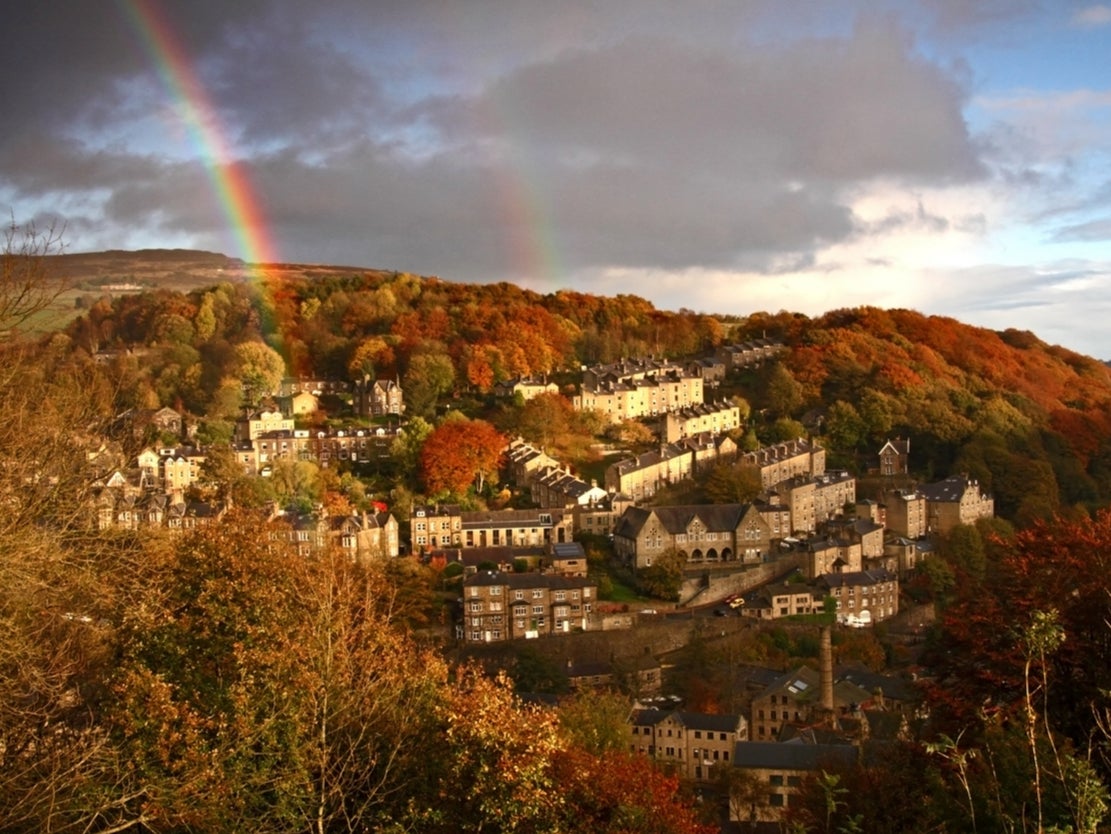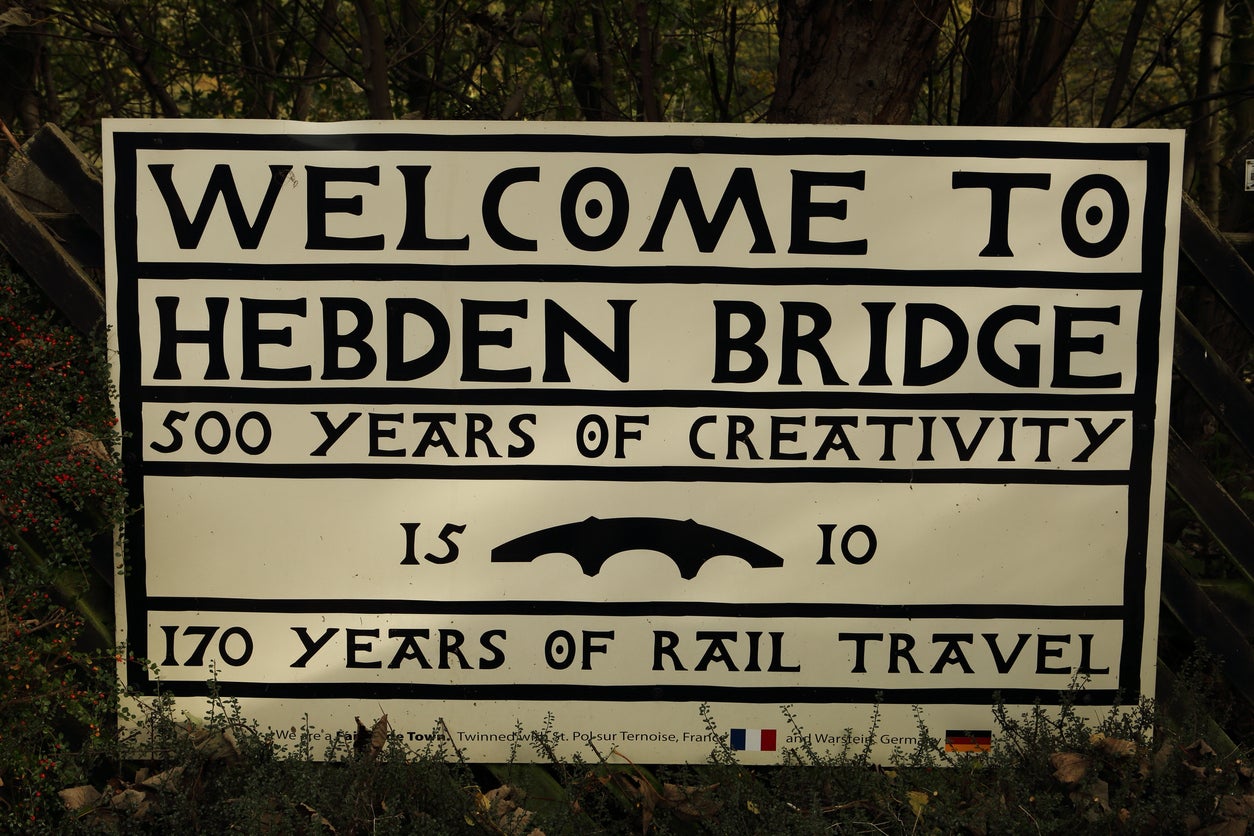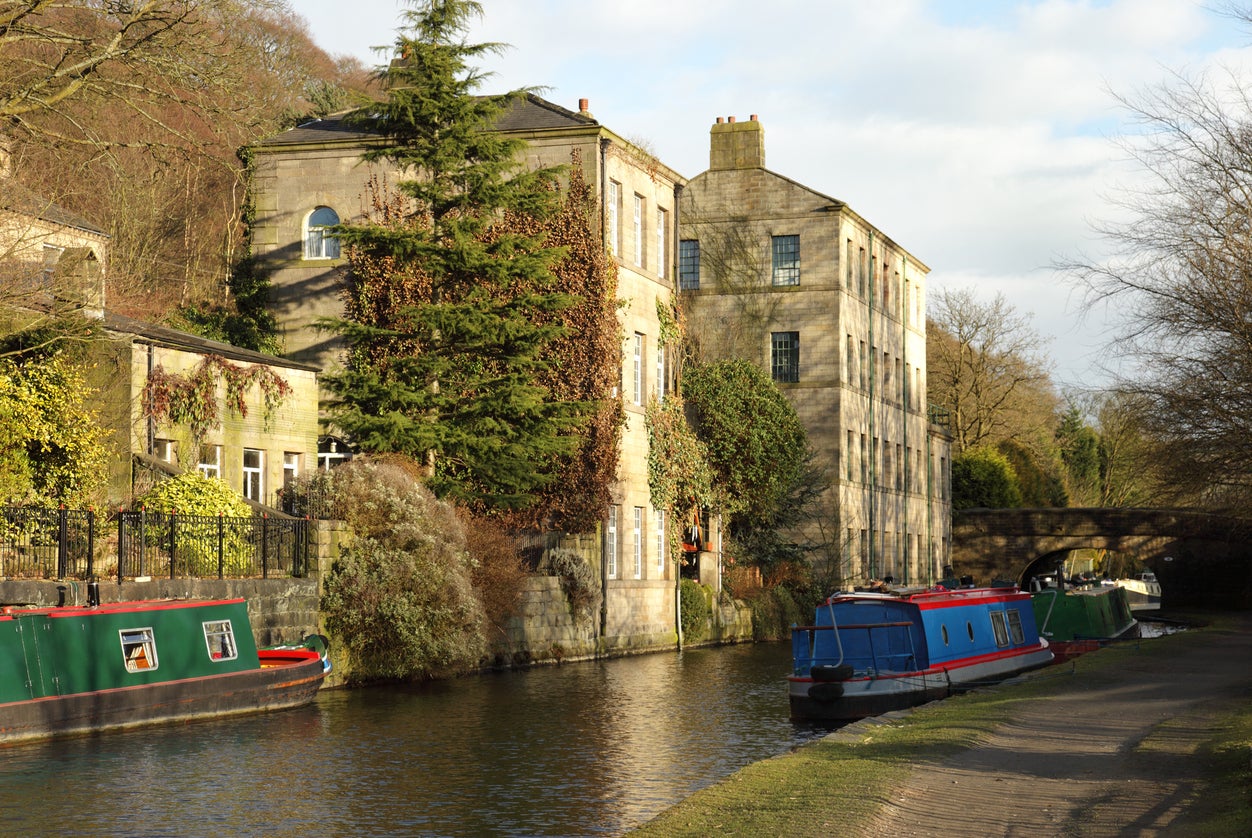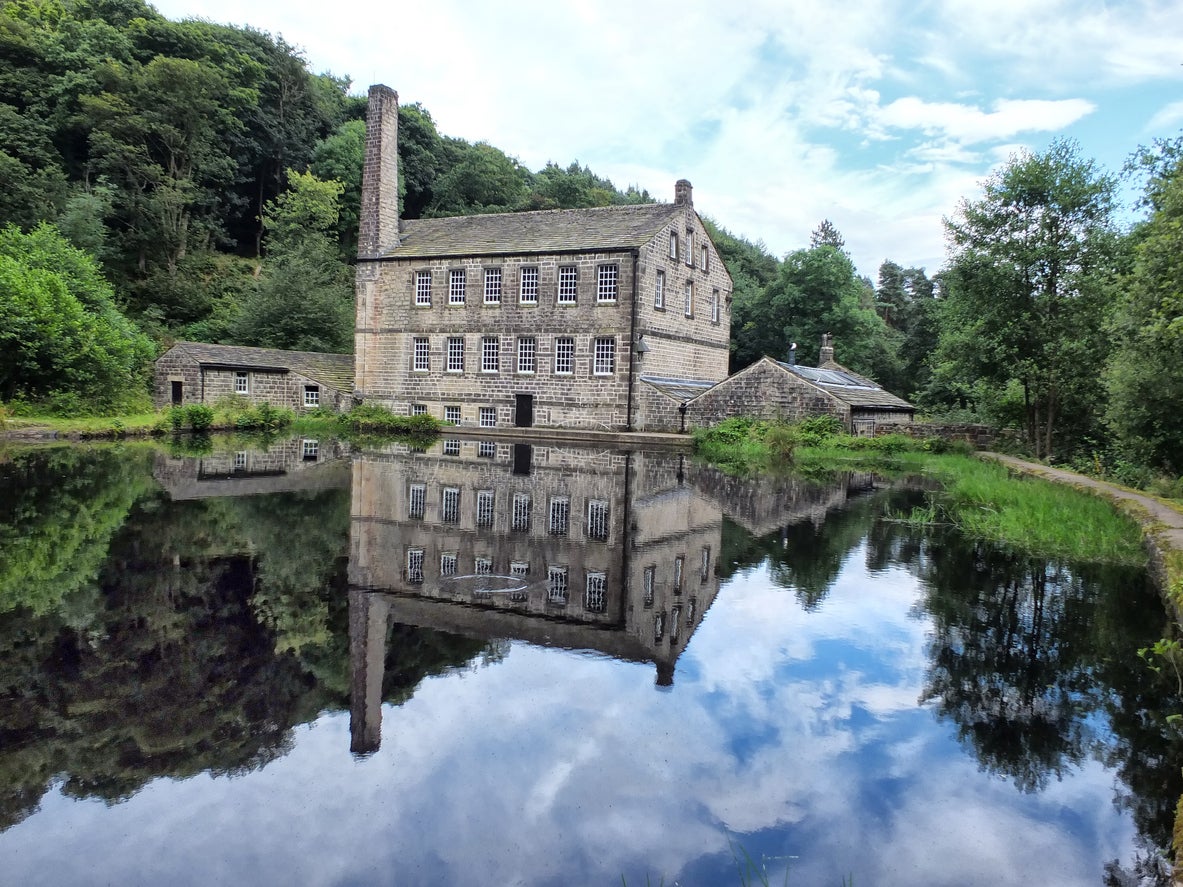The Independent's journalism is supported by our readers. When you purchase through links on our site, we may earn commission.
Welcome to my home town: Finding peace in hippie Hebden Bridge
After coming to terms with her misspent youth, Crystal Wilde finally saw the quirky charms that attract so many to her ultra-alternative home town

Hippies, hikers, kooky cafes, drugs and lesbians: my home town of Hebden Bridge in West Yorkshire is notorious for many reasons, some more surprising than others.
With an almost complete absence of chain stores and an abundance of independent and distinctly creative businesses, this tiny town of just 4,500, along the Pennine Way between Manchester and Leeds, is consistently named among the best in the Great British High Street competition. Alternative clothing, fair-trade treats, homemade jewellery and unusual souvenirs can all be found on the former mill town’s cobbled streets, with their soot-kissed sandstone and overflowing hanging baskets.
Hebden Bridge is also known as the lesbian capital of the UK, an accolade which my very existence had some part in shaping. My mother, a lesbian, moved to Hebden in the early 1980s, as did throngs of other queer people and alternative types, attracted by the rock-bottom house prices in the then-struggling postcode. I came about as the product of an unofficial sperm-donation campaign, with my surname, Wilde, an adaptation of the description attached to many Hebden hippie kids. We don’t belong to anyone, you see.
The hippies have served the area well in many ways. Often named among the world’s quirkiest towns, with its relaxed vibe, colourful characters and all-round festival atmosphere, Hebden has become one of the most desirable places to live in Yorkshire. Yuppie commuters now pay a premium to put down roots here, much to the dismay and amusement of the original Eighties immigrants, who presumably bought their homes for a handful of change and a lump of sticky black.
As dramatised in Sarah Lancashire’s popular crime series Happy Valley and reported in the controversial documentary Shed Your Tears and Walk Away, however, the town’s penchant for guilt-free good times and free-range parenting seems to have encouraged an exaggerated trend of drug and alcohol abuse, either spurred on by, or resulting in, depression.

Having seen several lives severely damaged by this crippling cocktail, I was quick to label Hebden as a bad place to grow up when I first moved away in my twenties. It’s every teenager’s dream to be left to their own devices, but being surrounded by the things most people only dabble in at university when you’re still young enough to ride the bus for half-fare is not necessarily a recipe for success or happiness.
I am, for the first time since I left it, starting to miss the weird and wonderful place of my upbringing
I had for many years regaled my husband – who grew up on the mean streets of London’s Ealing – with shocking tales of the dark side of Hebden Bridge. It was only when I finally took him for a visit a couple of years ago that I saw my hometown, with its ale-coloured canals, cosy pubs, jolly locals and verdant surrounding countryside, through a visitor’s eyes.
Living in China and unable to return to the UK for almost two years, it was only during the Covid-19 pandemic that, for the first time since I left it, I was able to truly appreciate and miss the weird and wonderful place of my upbringing. Free love and free access to drugs might have their drawbacks, but I’ve come to realise that Hebden Bridge may in fact be a little slice of utopia after all.
Arrive in style
Unless coming by car, you’ll likely arrive in Hebden Bridge by train, allowing your sightseeing to begin immediately. Hebden Bridge railway station has a beautifully restored 1890s glass-roofed platform and ticket office, adorned with hanging baskets and original signage. From here, it’s just a five-minute stroll along the canal or through the park to reach the town centre.
Drink and dance
First founded in 1924 as a Labour Party social club, the Trades Club remains a hangout for Hebden’s liberal lefties in its reincarnation as a live music venue. Its tiny stage has attracted numerous musical greats over the years, including Patti Smith, Beth Orton, Willy Mason and Badly Drawn Boy. It is without doubt the place to go to let your hair down with some well-lubricated locals.

Crawl the pubs
Hebden Bridge is home to more well-kept and historic pubs than you can shake a muddy walking boot at. The canalside Stubbing Wharf is known for its decent, if not particularly inventive, food and real ales, plus sun-soaked beer garden (weather permitting). The Robin Hood Inn has a lovely lofty terrace, sitting up on a hill above the town, and thereby proves popular with the merry bands of cyclists that buzz around the valley.
Walk and cycle
Thanks to its enviable position smack-bang on the Pennine Way, Hebden Bridge is surrounded by a lively knot of hiking and cycling routes. Explore the bracken, bluebells (in spring) and brooks of Hardcastle Crags, stopping off for a cuppa and a piece of cake at the 19th century Gibson Mill. Stretch the legs out a bit more on the moors with a visit to Stoodley Pike, an 1856 monument built at the end of the Crimean War, which dominates the Calder Valley horizon. Alternately, stay low and flat with a stroll or cycle along the network of canals that join Hebden to its neighbours.

Go to the flicks
Hebden Bridge Picture House is one of the last remaining council-owned cinemas in Britain. This 1920s cinema, complete with authentically uncomfortable red velveteen chairs and a sparkle-specked linoleum floor, is a grade II-listed building that continues to serve as a focal point for the community. New releases, arthouse features and foreign films are screened nightly, alongside matinees, morning shows (free tea and biscuits!) and live talks, especially during the annual Hebden Bridge Film Festival (March) and Hebden Bridge Arts Festival (July).
Rest your head
Housed in a grade II-listed building, Garnett Bed & Breakfast promises a homely stay right in the centre of town. The style is quaint, the breakfast is banging, and rooms are clean, spacious and good value. Rates are £75 a night for a single, £95 for a double and £115 for a triple room. Be sure to ask chatty proprietor Sharon for her local recommendations.
Join our commenting forum
Join thought-provoking conversations, follow other Independent readers and see their replies
Comments
Bookmark popover
Removed from bookmarks